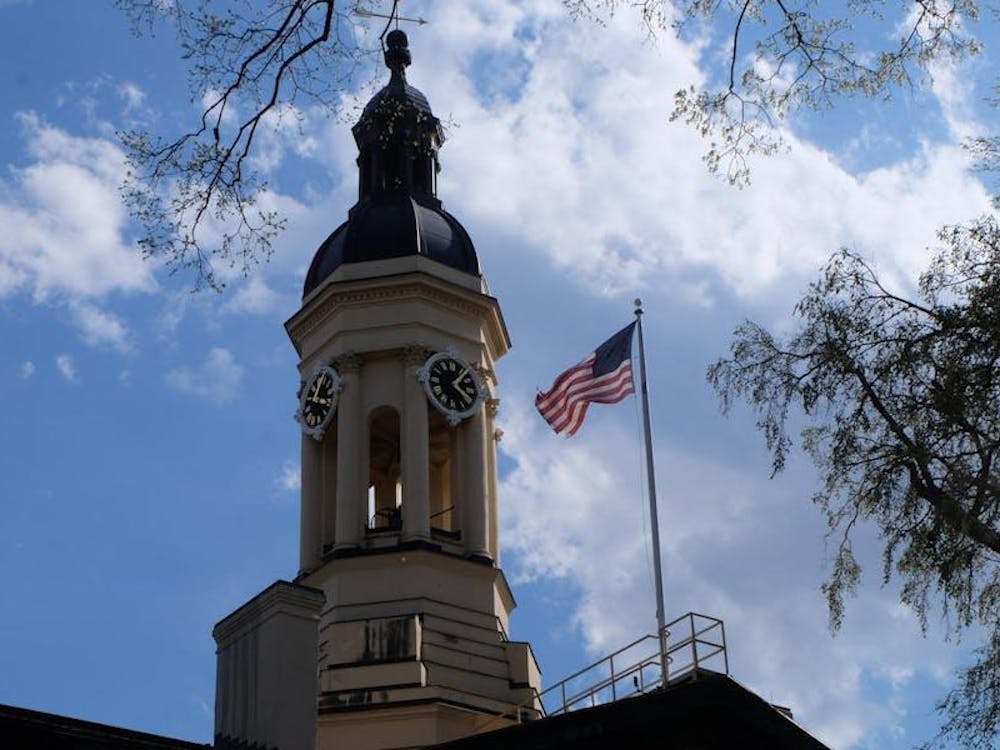While some voiced concerns when the University announced last week that Jones will serve as a distinguished visiting fellow at the Center for African American Studies and the Program in Science, Technology and Environmental Policy at the Wilson School for the 2010-11 academic year, the criticism was less intense than what Jones typically experienced while working in Washington, D.C.
“I’m personally against it,” Chloe Davis ’12 said, citing Jones’ controversial political past. “It’s not so much his particular politics [that I’m against], but by hiring Jones and welcoming him as a distinguished guest, the University is essentially condoning everything that has led to his forced resignation.”
Davis is also a Street writer for The Daily Princetonian.
After joining the Obama administration’s White House Council on Environmental Quality in March 2009, Jones resigned in September following attacks from Republicans.
Jones was criticized after his name appeared on a petition that was circulated in 2004 by the group 911truth.org, which questioned whether officials from former president George W. Bush’s administration may have played a role in the 9/11 terrorist attacks, and for referring to Republican senators as “assholes” in a February 2008 lecture in Berkeley, Calif.
Jacob Loewenstein ’11 said in an e-mail that he does not believe Jones’ past is a sufficient reason to oppose his hiring.
“His ambiguous ‘9/11 truther’ beliefs, as offensive and unfounded as they may be, ... should not preclude his participation in the academic discourse, so long as they [do] not interfere with his duty to present substantive and relevant material in his course,” Loewenstein said.
University spokeswoman Cass Cliatt ’96 said in an e-mail that reaction to appointments is not uncommon.

“We have received interest from beyond the University about Mr. Jones’ appointment, but we receive some level of reaction from almost every appointment we announce,” Cliatt explained.
In line with its goal of encouraging “civic discourse,” the University aims to assemble a faculty “representing a broad range of perspectives ... to exchange ideas,” Cliatt added.
Many students echoed Cliatt’s sentiment, noting that Jones’ presence at Princeton will foster debate on a wide range of issues.
“There are plenty of controversial professors at Princeton, on both sides of the aisle,” Chloe Bordewich ’12, co-president of Princeton College Democrats, said in an e-mail. “It is his proposed policies that are relevant to his work at Princeton, and [these] are what deserve debate.”

But students who opposed the appointment said that the attempt to foster dialogue was not justification enough for hiring Jones.
“I understand the University wants lots of different viewpoints,” Davis said, “but I don’t see that anything he could add to our education outweighs the condoning of his behavior.”
Jones’ hiring has not just sparked discussion about his politics, but has also drawn attention to the racial composition of the faculty he will join.
Politics professor Melissa Harris-Lacewell said in an e-mail that though she welcomes the announcement, Jones’ hiring is a reminder of the lack of tenured African-American faculty at the Wilson School.
“I am distressed that the [Wilson School] continues to maintain such a shockingly racially homogeneous faculty while touting the visiting position of a major African-American figure,” she said.
“[The Wilson School’s] continued failure to diversify its faculty through commitment to full-time tenured and tenure-track African-American faculty ... makes me less than enthusiastic about their extension of a brief visit to Jones,” Harris-Lacewell added.
Andy Wong GS, who is pursuing a master’s degree at the Wilson School, expressed a similar concern, though he said he is “delighted and thrilled that [Jones] is coming to Princeton.”
“The real outrage is why, at the Woodrow Wilson School, one of the best public policy schools in the country, there’s such a lack of people of color on the faculty,” he added. “So in that regard, I’m actually really happy that he’s going to be here.”
In addition to teaching a course in the spring semester, Jones will spend his appointment next year conducting research and participating in public discussions.







